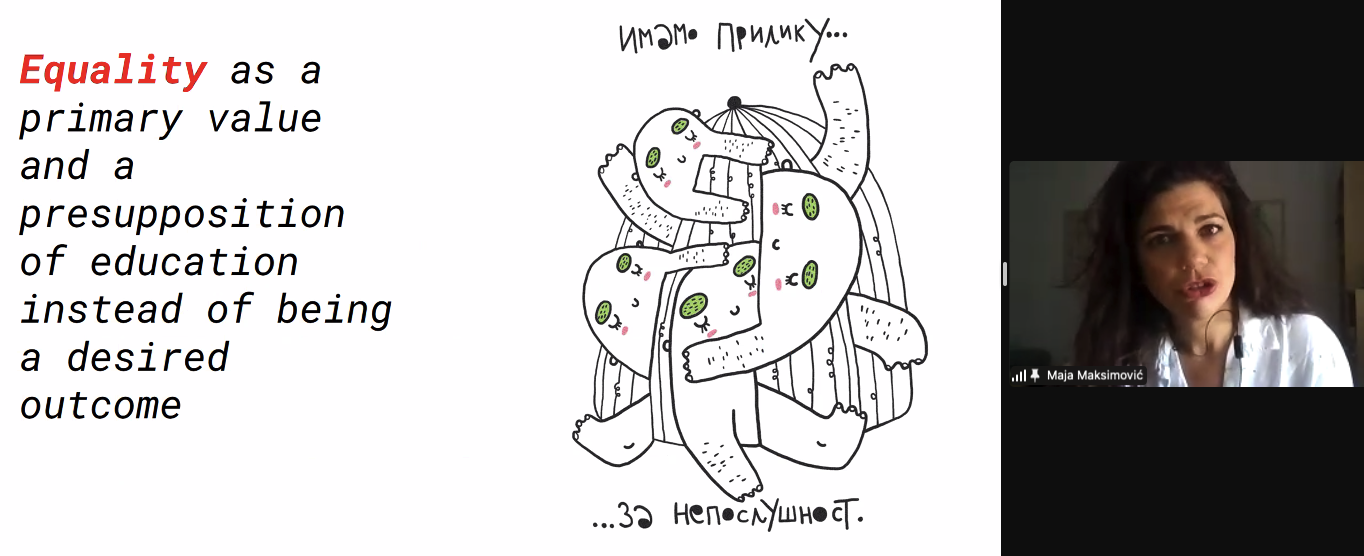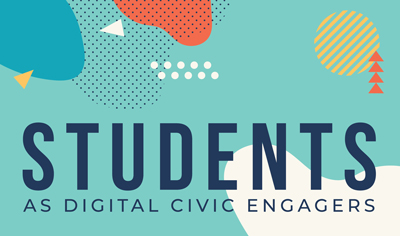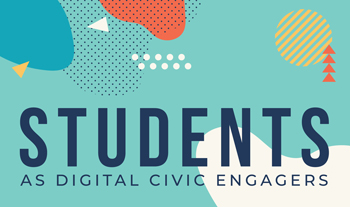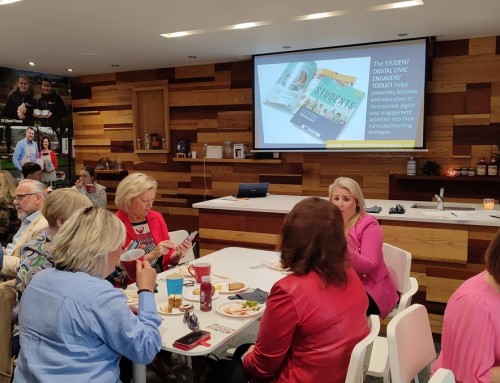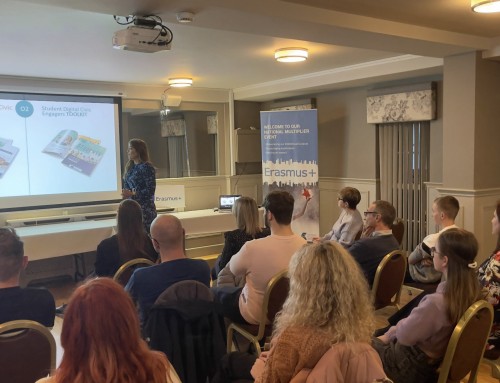The SDCE Multiplier Event organised by eucen was held online on Tuesday, 14 June 2022, from 9:30 to 13:30. eucen invited its members universities to attend the event, with a special focus on teachers and their students, and also promoted the event via the European Students Union. The event gathered teachers, researchers, students and stakeholders from different European higher education institutions in Europe.
 The event started with a welcome and an overview of the programme of the morning by Julie Wietrich, from eucen. Julie then gave a short presentation of the SDCE project and of the 4 Intellectual Outputs created as part of the project, before introducing the first keynote speaker: Maja Maksimovic, Assistant Professor at the Department for Pedagogy and Andragogy at Faculty of Philosophy of the University of Belgrade. Maja Maksimovic spoke about a concrete example of digital student engagement at the University of Belgrade – which is also included in the SDCE Guide to Digital Civic Engagement: the Course Adult Education for Activism and Human Rights. Her presentation was an opportunity to reflect on the importance of students’ engagement and on the means to foster it. The presentation was followed by a discussion with two students who were involved in the course in the past years: Ana Vukas and Dragana Pujić, who shared their experiences and learnings from the course. They also mentioned how the covid-19 situation influenced their experience, and how digital means had to be used to complete their collective action project and the course successfully. After listening to this concrete example of students’ digital civic engagement, the second keynote speaker was introduced: Ruben Janssens, member of the Executive Committee of the European Students Union (ESU). He put the topic of students’ engagement into perspective and focused on “Student engagement in the context of digitalisation and learning and teaching”, presenting the views of ESU, and therefore of students. After a break, participants were invited to join the discussion and to ask their questions to Maja Maksimovic and Ruben Janssens. They mentioned, among other topics, the changing role of teachers, the attitude of students in the face of students centred teaching and learning, but also the opportunities and the risks of digitalisation when it comes to teaching and learning and students’ engagement.
The event started with a welcome and an overview of the programme of the morning by Julie Wietrich, from eucen. Julie then gave a short presentation of the SDCE project and of the 4 Intellectual Outputs created as part of the project, before introducing the first keynote speaker: Maja Maksimovic, Assistant Professor at the Department for Pedagogy and Andragogy at Faculty of Philosophy of the University of Belgrade. Maja Maksimovic spoke about a concrete example of digital student engagement at the University of Belgrade – which is also included in the SDCE Guide to Digital Civic Engagement: the Course Adult Education for Activism and Human Rights. Her presentation was an opportunity to reflect on the importance of students’ engagement and on the means to foster it. The presentation was followed by a discussion with two students who were involved in the course in the past years: Ana Vukas and Dragana Pujić, who shared their experiences and learnings from the course. They also mentioned how the covid-19 situation influenced their experience, and how digital means had to be used to complete their collective action project and the course successfully. After listening to this concrete example of students’ digital civic engagement, the second keynote speaker was introduced: Ruben Janssens, member of the Executive Committee of the European Students Union (ESU). He put the topic of students’ engagement into perspective and focused on “Student engagement in the context of digitalisation and learning and teaching”, presenting the views of ESU, and therefore of students. After a break, participants were invited to join the discussion and to ask their questions to Maja Maksimovic and Ruben Janssens. They mentioned, among other topics, the changing role of teachers, the attitude of students in the face of students centred teaching and learning, but also the opportunities and the risks of digitalisation when it comes to teaching and learning and students’ engagement.
After the questions and answers session, Carme Royo, Executive Director of eucen, invited the participants to test the tools and resources developed in the framework of the SDCE project. She presented the structure and objectives of each of the tools developed and showed participants how to access the IO1 Guide to Digital Civic Engagement, the IO2 Digital Civic Engagement Toolkit and the IO4 Digital Civic Engagement MOOC. Participants were given some time to download and go through the different resources. Carme then moderated a final plenary session during which participants shared their feedback and their plans and ideas to use the tools or recommend them in the future. The eucen team finally closed the session by thanking participants and asking them to share their feedback on the event and to fill in an evaluation form.
Insights and Recommendations for the SDCE project
Not all the participants responded to the evaluation form, but the plenary session at the end of the event was a good opportunity to reflect both on the IOs of the project and on the Multiplier Event itself. Most participants found the event and the discussions relevant or very relevant. They especially enjoyed listening to the perspectives and experience of students on the topic of students’ engagement and to Maja Maksimovic’s talk and approach to teaching and learning in higher education. Most participants, and especially the teachers and students found the resources useful and estimated that they would use them in the future and are likely to recommend them to their colleagues. Regarding the content of the SDCE IOs, the participants highlighted the following:
- IO1 Guide to Digital Civic Engagement:
- The introductory part with definitions is particularly interesting and useful for teachers, who can use it with their students.
- Students found the guide very useful and would use it as a background document for any course or activity of students’ civic engagement.
- The competences on DCE are very useful and can be used to evaluate oneself, both teachers and students.
- The international and national perspectives are very interesting and inspiring.
- The Guide is well structured.
- IO4 Digital Civic Engagement MOOC
- The design is user-friendly and makes it very easy to understand the MOOC, which is not always the case with online courses.
- The short quizzes at the end of each topic are very useful and make the content more interactive and easier to follow.
- The MOOC is well structured and offers quality content. It is free.
- Suggestion: the accessibility for people with disabilities could be improved.
